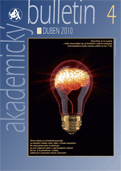Academy of Sciences of the Czech republic › Science and Research › Significant and interesting projects › Life and Chemical Sciences Division
Self-Organized Amphiphilic Block Copolymer Nanostructures (AMPHI)
Electrolyte polymer membranes are widely studied materials because of their extensive electrochemical applications in separation processes, energy storage and in fuel cells. Their main feature as a membrane is to separate physically two compartments, having different chemical reactions, with good mechanical properties and to allow an ionic transport between both parts. Usually, the structure of the membrane is more or less random or disordered on the microscopic scale. Yet, it is the (ionic and solvent) transport properties on these scales that ultimately determine the applicability of the membrane for the given purpose and clearly materials with regular nanoscopic structure are likely to have superior properties. In order to generate membrane materials with regular (ordered) and controlled structure, we propose to make use of existing knowledge, including our own experience, of self-ordering of hydrophobic diblock and triblock copolymers and extend the research to combinations of hydrophobic and hydrophilic blocks. We intend to investigate conditions under which ordered morphologies with different symmetries can be created as a function of polymer type, length and compositions and properties of such materials when swollen with water or an electrolyte. Nanoscale structured block copolymers with either Li+ affinity or proton exchange group will be investigated in order to study model compounds for membranes used in fuel cells or batteries.

CONTACT PERSON:
Dr. Petr Štěpánek
Institute of Macromolecular Chemistry, of the ASCR
More details on the project: http://www.esf.org/esf_article.php?language=0&activity=7&domain=1&article=239&page=1108





